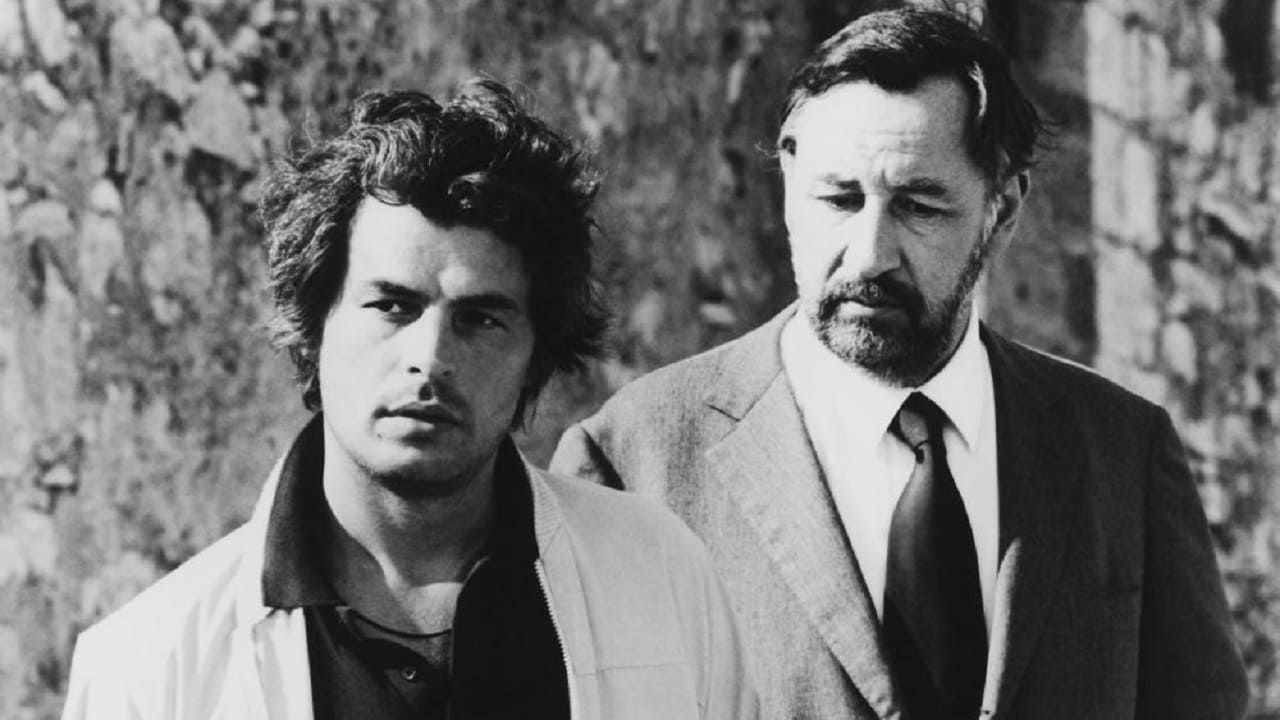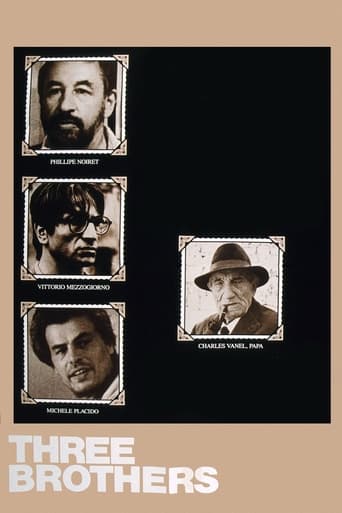



SERIOUSLY. This is what the crap Hollywood still puts out?
View MoreI cannot think of one single thing that I would change about this film. The acting is incomparable, the directing deft, and the writing poignantly brilliant.
View MoreI think this is a new genre that they're all sort of working their way through it and haven't got all the kinks worked out yet but it's a genre that works for me.
View MoreExcellent and certainly provocative... If nothing else, the film is a real conversation starter.
View MoreAnd it tries very hard ... unfortunately it never truly delivers. The story as it is has many facets that are interesting, but it never really get's interesting for the viewer. While the actors seem to try to make the best of it, you never really comprehend, where all this is trying to go, what it tries to tell you. It's a shame, because it would've been a really good movie ...The downfall might be the structure (I can't really put my finger on it). Different time-lines that do collide, some interestingly some not so much. Plot threads opened, some resolved in an unsatisfying way and issues come and go leaving you a bit uncaring about the characters and their problems ... Well it's independent, but I still had higher hopes from this movie.
View MoreI just watched this film with my wife on a Netflix DVD. It is a very slow-paced film, but it captivates you and does what a great film should always do-- it transports you to another world and allows you to enter the lives of other people. In this case, we see the world through the eyes of three brothers, each of whom has long ago moved away from the impoverished village in southern Italy where they grew up. Each has taken on a distinct vocation-- The eldest is a respected judge, a member of the establishment, who, in spite of threats from terrorists, continues to carry out his duty. The middle brother is a liberal, charitable man who is trying to help kids in trouble and whose heart bleeds for the wretched of the earth. The youngest is a Don Juan, who migrated to the northern city of Turin to find work and got mixed up in the radical labor movements that are close to, if not part of, the very terrorist organization the elder brother is trying to stop.The three brothers engage in conversation about these matters and we see their thoughts in dreams and flashbacks. But what really grounds the film is the old man, their father, and his remembrances of his recently departed wife. His tenderness with his granddaughter also gives the movie a sweet touch. In the end, this film leaves you richer for the experience of having watched it.
View MoreThis film made during the late seventies studies how a family deals with the death of their martriarch. I found myself relatively bored watching the film but I was impressed with the amount of detail that went into developing the characters. What is most impressive is how the filmmaker concentrates on the differences in generations. That is to say the filmmaker compares and contrasts each caracter with where they were born, when, and how they were brought up.If you are in the mood for a sit back and rest type of film this is not it. But if you want a thinker, you've met your match.
View MoreTHREE BROTHERS narrows with ease the gulf between two creative approaches in Italian cinema: the drama of social observation and the poetry of lyric force. That any film-maker would be able to look at the problems of a modern industrial society with the sensitivity of a poet or a painter is a wonder in itself. That director Francesco Rosi succeeds so eloquently is doubly wondrous. But then this is the gifted creator of CHRIST STOPPED AT EBOLI and ILLUSTRIOUS CORPSES. The three brothers have returned to their southern home village after the death of their mother. The film begins with the magnified sounds of heartbeats on the soundtrack against the bleak images of a huge building with dark, knocked-out windows. When the credits end we are shown a hideous cluster of rats in close-up. It is the disturbing nightmare we have shared with the middle of three brothers, a worker in a boys' reformatory in Naples. Frustrated by his battle to keep kids off drugs and away from crime, he is the self-giving liberal who is losing the fight. The younger brother is a Turin factory worker, embittered about his working conditions and victim of a failing marriage. The eldest son is a sedate magistrate in a Roman court who is handling a case involving terrorists and who constantly fears for his own life. He also looks upon his radicalized younger brother as a threat, one of the potential terrorists he is struggling against. The Puglia village to which the brothers return is an impoverished place from which they have long escaped and for which each professes a hopeless nostalgic attachment. Much of the movie delves into the varying anxieties of the brothers at a moment of intense introspection. Their aging patriarch father, on the other hand, is a man of great dignity, calm, and simple religious fervor, an emblem of what modern society has lost. He reflects a diminishing and changing past that can never be regained. It is a past that the old man's little granddaughter, with her childlike fascination for the little pleasures of country life, becomes fond of. There is bond between the two that is one of the most touching elements of this film. In a way she is a continuation of her own dead grandmother's attachment to the simple joys of life. The film says that while the sons have gained something in the amenities of urban civilization, they have lost something as well, something vital and profound. They have lost their home, their roots, their traditional values. They lie on children's cots now too small for them. They are overgrown children in cribs, and their uneasy reflections take on the bitterness of regret. They had departed from here for the best of reasons and once gone, as the youngest brother explains, they became immediately homesick. What is in THREE BROTHERS? Very little, if you count. There is a death, a brief return to a hometown, a few memories and flashbacks, some jarring evocations, a child playing, a burial, a beautiful final image. Indeed, nothing much happens. And yet it is as though everything happens. From its poetic tableau-like portrait of life, death, homesickness, there emerges a tapestry of modern society, perhaps even modern man in general, that is as violently graphic as it is lovingly gentle. It is a work of art.
View More